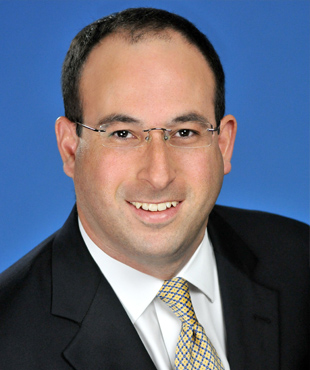Frank Cruz-Alvarez is a Partner with Shook, Hardy & Bacon L.L.P. in the firm’s Miami, FL office, and Britta Stamps is an Associate in the firm’s Kansas City, Mo office. Mr. Cruz-Alvarez is the WLF Legal Pulse’s Featured Expert Contributor on Civil Justice/Class Actions.
In the wake of Spokeo, courts have been tasked with ruling on standing issues in case after case. See Spokeo Inc. v. Robins, 136 S. Ct. 1540 (2016). Spokeo clarified that a statutory violation, alone, does not create standing. Id. at 1549. Rather, a plaintiff can only establish an injury in fact by demonstrating that the statutory violation created a “risk of real harm.” Id. Yet parties seeking to settle a class action, for example, may want to ignore jurisdictional issues like standing in the interest of efficiency and costs. The parties’ choice to turn a blind eye to standing, however, prevents neither the court from sua sponte evaluating whether the plaintiff has standing nor an objector from raising the issue at a final approval hearing. If and when this jurisdictional issue is brought to the court, the parties’ desire to quickly settle a case can quickly derail.
Such is the case of Muransky v. Godiva Chocolatier, Inc., where the parties raced to settle a case while Spokeo was pending in the Supreme Court. No. 16-16486 & 16-16783, 2020 WL 6305084 (11th Cir. Oct. 28, 2020). The class representative in Muransky alleged that Godiva violated the Fair and Accurate Credit Transactions Act (“FACTA”) when it printed more than 5 digits of customers’ credit card numbers on their receipts. The complaint disclaimed any recovery for actual damages and sought only the statutory damages of $1,000 per violation. Multiplied out by the class size, Godiva faced liability of $342 million of statutory damages. But the class representative did not allege that he suffered any actual harm, asserting simply that “Plaintiff and members of the class continue to be exposed to an elevated risk of identity theft.” The parties settled the case for a total of $6.3 million, with $2.1 million going to attorneys’ fees. The district court then certified the class for settlement purposes, granted preliminary approval of the settlement, and directed notice to the class members while Spokeo was still outstanding.
Not so fast, said an objector at the final approval hearing. By that point, the Supreme Court had issued the Spokeo opinion, and the objector argued that the district court must examine Article III standing under Spokeo. But the district court issued its final approval of the settlement shortly thereafter, without addressing Spokeo or Article III standing. On appeal, the Eleventh Circuit makes clear that even if the parties want to settle quickly for strategic purposes, they cannot avoid jurisdictional issues like standing.
That begs the question, then, does a statutory violation—alone—establish standing? Probably not. After Spokeo, a plaintiff can establish an injury in fact by demonstrating that the statutory violation created a “risk of real harm.” 136 S. Ct. at 1549. In Muransky, the Eleventh Circuit pointed out that such a risk must be “material,” creating a “high standard” for a plaintiff to satisfy. 2020 WL 6305084 at *7. So does the violation of a statute, such as printing too many digits of a credit card number on a receipt in violation of FACTA, create a material risk of real harm? This determination boils down to two key questions. First, did the violation itself cause harm, whether tangible or intangible, to the plaintiff? If so, that is sufficient to create standing. If not, courts should move to the second question: Did the violation pose a material risk of harm to the plaintiff? If not, the plaintiff does not have standing.
In the case of Muransky, the Eleventh Circuit applied Spokeo and held that “a ‘bare procedural violation, divorced from any concrete harm’ is not enough to establish an Article III injury.” 2020 WL 6305084, at *8 (quoting Spokeo, 136 S. Ct. at 1549). A “naked assertion” that the class representative or class members are exposed to an elevated risk of identity theft—as claimed by the class representative here under FACTA—does not satisfy the concreteness requirement. The same reasoning could apply to a number of statutory violations. Simply because Congress enacted a statute to protect against a particular harm does not automatically mean a violation of that statute creates a substantial risk of harm to the plaintiff. And if the plaintiff fails to show a material risk of harm caused by the violation of the statute, the class representative lacks standing. No matter how much parties may wish to bargain around the standing issue to reach a quick settlement, district courts are “powerless to approve a proposed class settlement” if “no named plaintiff has standing.” Id. at *13 (quoting Frank v. Gaos, 139 S. Ct. 1041, 1046 (2019)).
Multiple judges dissented from the majority. Judge Wilson concluded in his dissent that “[b]oth Congress and history have established that a consumer has a concrete interest in using a credit or debit card without incurring a heightened risk of identity theft.” 2020 WL 6305084 at *17 (Wilson, J., dissenting). Judge Wilson continues his dissenting opinion by examining the statutory text, legislative history, and public policy. At base, Judge Wilson departs from the majority on the issue of what exact interest FACTA was enacted to protect. Judge Martin also dissented and also concluded that the class representative had a concrete interest in receiving a receipt that contains no more than 5 digits of his credit card number. Judge Martin emphasized that the class representative should not be required to actually fall victim to identity theft in order to establish a harm under Spokeo. Finally, Judge Jordan likewise concluded that the class representative established standing to assert Godiva’s violation of FACTA, but that even if standing did not exist based on the original pleadings, the class representative should have an opportunity on remand to satisfy the “newly articulated” Article III standing threshold.
Following Muransky, class representatives can no longer skate by with bare allegations of statutory violations unmoored to material harms. Defendants should immediately scrutinize the alleged harm in a class-action complaint. If the plaintiffs’ damages are limited to statutory damages pursuant to the alleged statutory violation, dismissal under Spokeo may be warranted.


